Vaginal Dryness
To combat the discomfort of vaginal dryness, a range of over-the-counter solutions is specially designed to replenish moisture and provide relief. Commonly resulting from hormonal changes like menopause, post-childbirth phases, breastfeeding, or as side effects of certain medications, these treatments effectively soothe and hydrate the delicate vaginal tissues. Read More…

-
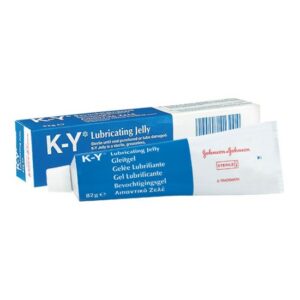
KY Jelly Personal Lubricant – 82g
- To Allevaite Vaginal Dryness
- Recommended By UK Doctors
- Buy With Confidence From UK Registered Pharmacy
-
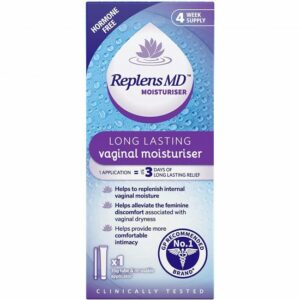
Replens MD Vaginal Moisturiser 35g
- Long Lasting Relief For Vaginal Dryness
- Buy With Confidence From UK Registered Pharmacy
- Next Day Delivery Available
-
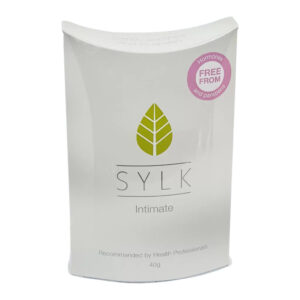
SYLK Intimate Vaginal Moisturiser
- Long Lasting Relief For Vaginal Dryness
- Water Based - Safe To Use With Contraception
- Active Ingredient: Citric Acid
-
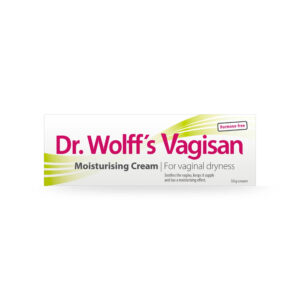
Dr. Wolff’s Vagisan Cream – 50g
- Fast Relief From Vaginal Dryness
- Recommended By UK Doctors
- Buy With Confidence From UK Registered Pharmacy
-
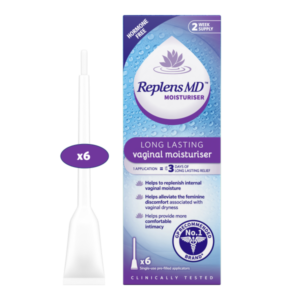
Replens Vaginal Moisturiser – 6 Single Use Applicators
- Lasts up to three days
- Oestrogen and hormone free
- Fragrance free
-
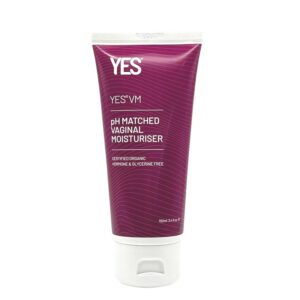
YES Vaginal Mousturiser Gel – 100ml
- Long-lasting rehydration
- Samrt Moisture Release
- Fast Acting
-
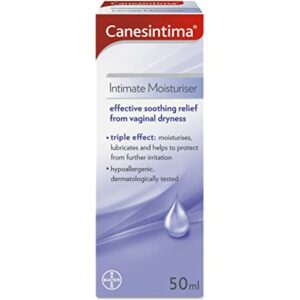
Canesintima Intimate Moisturiser – 50ml
- Non-Sticky, Water Based
- Compatible For Use With Condoms
- Effective Treatment For Vaginal Dryness
-
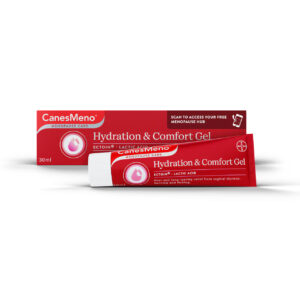
CanesMeno Hydration and Comfort Gel – 30ml
- Fast, long-lasting relief from vaginal dryness, burning and itching
- Moisturising gel
- Maintains pH balance inside the vagina
-
About Vaginal Dryness
Vaginal dryness can often be a result of changes in hormone levels, particularly oestrogen, which can occur during menopause, breastfeeding, childbirth, or as a side effect of certain medications like hormonal birth control, chemotherapy, and some antidepressants. Non-hormonal causes can also contribute, such as the use of certain medications for allergies and colds, chronic stress, and using harsh or scented products in the vaginal area. Over-the-counter lubricants and vaginal moisturisers are often the first line of treatment. These can help to replenish moisture and provide relief from discomfort. For those who need it, hormone replacement therapy (HRT) may also be an option, with various forms such as oestrogen creams that can help restore vaginal health.
-
Symptoms
Vaginal dryness is a common condition that can result in a variety of symptoms, which may include:
Dryness or Irritation: A lack of natural moisture in the vagina leading to discomfort.
Burning or Itching: These sensations may be constant or only occur during specific activities like sex or urination.
Pain During Intercourse: Due to reduced lubrication and potential narrowing or tightening of the vaginal opening.
Increased Risk of Infections: The lack of moisture can lead to a higher susceptibility to both vaginal and urinary tract infections.
Urinary Frequency: You may find yourself needing to urinate more often, which is linked to the changes in the tissues in the urinary tract.
Other Menopausal Symptoms: Such as night sweats and insomnia, if the dryness is related to menopause.These symptoms can range in severity and may not all be present at once. They can be more pronounced in women going through menopause or post menopause due to the significant drop in oestrogen levels. However, non-menopausal causes can include childbirth, breastfeeding, certain medications, and medical treatments like chemotherapy or radiation.
-
Diagnosis
Diagnosing vaginal dryness typically involves a medical evaluation by a healthcare professional, often a gynaecologist. They may begin with a discussion of symptoms and a physical examination of the vaginal area. To support the diagnosis, they may perform a pH test to check the acidity level of the vagina, which can be indicative of vaginal atrophy. If the pH is higher than normal, it may suggest that the vagina is less acidic than it should be, a common occurrence in vaginal atrophy due to decreased oestrogen levels.
The examination might include assessing the vaginal walls and entrance for thinning, dryness, or inflammation. Doctors can also check for other signs of atrophic vaginitis like dryness or soreness, burning sensations, itching, and bleeding, or urinary tract issues such as recurrent cystitis.
-
Treatment
Over-the-counter treatments for vaginal dryness can offer significant relief by hydrating and moisturising the vaginal tissue, restoring comfort. These treatments come in various forms, including lubricants and moisturisers, and may have different active ingredients aimed at alleviating the dryness.
Here’s a list of our highlighted products that can help manage the condition:
KY Jelly Personal Lubricant – 82g: A lubricant recommended by UK doctors to alleviate vaginal dryness.
Replens MD Vaginal Moisturiser – 35g: A long-lasting moisturiser offering relief from vaginal dryness.
SYLK Intimate Vaginal Moisturiser: A water-based formula, safe for use with contraception, providing long-lasting relief.
Dr. Wolff’s Vagisan Cream – 50g: Offers fast relief from vaginal dryness and is recommended by UK healthcare professionals.These products are typically water-based or contain hydrating ingredients and are formulated to be safe and effective for regular use. They can be particularly helpful during menopause, post-childbirth, or at any time when hormonal changes might cause vaginal dryness.
-
Prevention Strategies
To minimise the chances of experiencing vaginal dryness, consider incorporating these prevention strategies:
Regular Use of Moisturisers: Regular use of vaginal moisturisers can help maintain moisture levels and vaginal health. Products like Replens are available for this purpose.
Vaginal Lubricants: Applying vaginal lubricants during sexual activity can alleviate discomfort.
Vaginal Oestrogen: If you’re postmenopausal, vaginal oestrogen in the form of creams, rings, or tablets can be prescribed by your doctor to improve the health of vaginal tissues and aid in moisture production.
Selective Oestrogen Receptor Modulators (SERMs): These are medications like Ospemifene that act on hormone receptors to improve vaginal cell health and moisture.
DHEA Supplements: DHEA is a hormone that decreases after menopause; using DHEA supplements as vaginal suppositories may help restore vaginal health and reduce discomfort.
Topical Sildenafil: While commonly used for erectile dysfunction in men, some women may benefit from the topical application of Sildenafil cream to the clitoris to increase blood flow and natural lubrication.
Regular Sexual Activity: Engaging in regular sexual activity or vaginal stimulation can help maintain healthy vaginal tissues after menopause.These suggestions are general and it’s important to consult with a healthcare provider for personalised advice, especially if you have medical conditions or are taking medications that may affect vaginal health.












